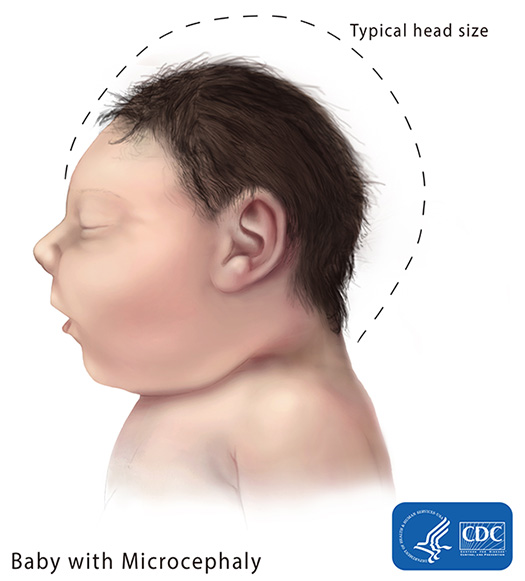Expert Reaction
These comments have been collated by the Science Media Centre to provide a variety of expert perspectives on this issue. Feel free to use these quotes in your stories. Views expressed are the personal opinions of the experts named. They do not represent the views of the SMC or any other organisation unless specifically stated.
Dr Mike Catton is the Deputy Director of the Peter Doherty Institute for Infection and Immunity
A comprehensive study published in the New England Journal of Medicine earlier this week provides further evidence of the link between Zika virus and microcephaly. The report describes the case of pregnant European woman who returned to Slovenia in October 2015 after living in Brazil for close to two years.
Thirteen weeks into her pregnancy she fell ill with a high fever, muscle pain and a rash. At 29 weeks, fetal anomalies were observed and at 32 weeks, microcephaly was diagnosed and the pregnancy aborted. Subsequent tests found the Zika virus in the fetal brain tissue with no suspicion of genetic syndromes or disease. While further analysis and studies must be carried out, this report provides compelling evidence of the link between the Zika virus and microcephaly.
Adjunct Associate Professor Ian Mackay is a Professor of Virology at the Australian Infectious Diseases Research Centre at the University of Queensland
Have we progressed in terms of being able to confirm a causal link between zika virus and microcephaly?
With two recent papers in the past week, we have seen some stronger evidence that Zika virus, but not other viruses that were sought and not found, seems to have a strong affinity for brain tissue but not other tissues. But these reports do not point to a “smoking gun”. The presence of Zika virus genetic material in the brain tissue of a fetus during a time of an epidemic of that virus is not proof that the virus causes the brain injuries. Proving that link will take some time and will be hard to achieve.
If you are pregnant and have the zika virus what are the chances of your baby having microcephaly?
Very slim. If Brazil’s numbers hold up – and that is still under investigation – roughly 4,000 diagnoses of microcephaly occurred from among 3 million births in 2015.
At what stage of pregnancy can people find out
Head measurement after birth is the most reliable way according to the World Health Organization (http://www.who.int/emergencies/zika-virus/microcephaly/en/) Ultrasound is reportedly not useful until past the second trimester (also WHO).
What are the options for women with zika virus?
Serial ultrasounds (http://www.cdc.gov/mmwr/volumes/65/wr/mm6502e1.htm) are considered a way to monitor the growth of the foetus, and the Mum’s serum, urine or amniotic fluid may be tested for Zika virus.
Has there been any progress on the development of a vaccine?
Sanofi-Pasteur described their intention to speed the production of a vaccine. Biotech companies have also announced plans to work on, or investigate the feasibility of developing, a vaccine. The timeline for a useful product emerging ranges from the end of 2016 to five or ten years before they can reach full production.
Professor Cheryl Jones is a Professor of Paediatrics at The University of Sydney and Marie Bashir Institute for Infectious Diseases and Biosecurity. She is also President of the Australasian Society for Infectious Diseases (ASID)
Have we progressed in terms of being able to confirm a causal link between zika virus and microcephaly?
"It is not yet known if zika virus causes microcephaly. A causal link is biologically plausible as mother to child transmission of zika virus during pregnancy can occur, and zika virus has been detected in pathological tissues including the brain of fetal losses. An increase in babies born with microcephaly in Brazil occurred at the same time as increases in zika virus infection in the population."
If you are pregnant and have the zika virus what are the chances of your baby having microcephaly?
"This is unknown."
At what stage of pregnancy can people find out if their baby is affected?
"Pregnant women can be infected with zika at any stage of pregnancy. Confirmation of infection in women is by a blood test.
Confirming zika infection in the unborn baby requires testing of amniotic fluid; this is usually best not done until at or after 15 weeks of gestation. Testing can also be done on the newborn baby and fetal head growth monitored in the womb by ultrasound.
People cannot find out if their unborn baby has zika virus until this time. Any effects such as microcephaly may not be evident until later in pregnancy."
What are the options for women with zika virus?
"There is no antiviral medication for zika virus. Treatment is only supportive. Testing for zika virus can be undertaken by amniocentesis [an amniotic fluid test], and fetal growth monitored by serial ultrasounds in those with confirmed infection."
Has there been any progress on the development of a vaccine?
"There is no available vaccine, but many groups around the world are focusing their attention on this."



 Australia; NSW
Australia; NSW


